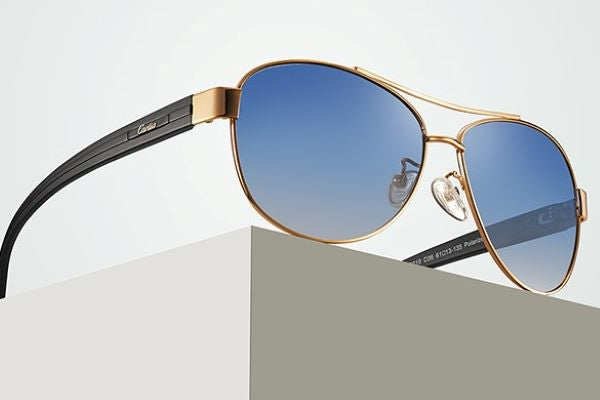Is it true that green film prevents blue light?
Some lenses filter out harmful blue light by reflective multiplayer coating. The lens has a bright blue-violet coating. Green film anti-blue lens relies on the lens material itself to absorb blue light. Therefore, it is impossible to know if the lens can really block the blue light only by looking at the film layer. Instead, it is necessary to use the test equipment of blue light blocking rate or ask the manufacturer to provide relevant experimental data. There is no problem wearing an anti-blue lens unless the user has a high demand for color authenticity, like painters, graphic designers, etc. Because when using anti-blue glasses to see white blue objects, there will be a certain color deviation. It is up to the above workers to make their own decisions.
Tungsten carbon glasses frame
Tungsten carbon material, one of the obvious advantages of this material is that it has good toughness and is ultra-lightweight. People will feel no pressure when wearing such glasses. It is good if you are a sportsperson who chooses it.
How to see if the lenses are too high?
- Look at an object in a distance 65 feet away or more.
- If you can’t see it clear, keep your eyes on the object and lower your chin. Check whether you can see clearly while looking through a more upper part in the lens than your lenses are too high.
Then you need to watch the difference in the blurriness on the contours of the roadsign.
Now, we will show you how to check if your lenses are too low. Hold something you want to read in your hands and lower your look with your eyes. Do not move your chin down as you look down. If you can’t read without lifting the glasses, the lenses are too low.
Comfort of Glasses
The most important thing when shopping for glasses is comfort. When you choose, you must try it on to see if you feel any discomfort. Whether the glasses can be well put on the upper part of the bridge of the nose, and whether they are light enough and will not cause any burden on the opposite side. In addition, you must see if there is any feeling of dizziness.
Be sure to wear qualified glasses.
Many people are eager to buy glasses online without the necessary checks at a proper optical center for glasses. But, in reality, these tests are not only to replace glasses but to take responsibility for the safety of their own eyes. These cheap and inferior glasses will do a lot of harm to most myopic friends. If you wear unqualified glasses, it will cause visual fatigue, headache, dizziness, nausea, and other symptoms, vision loss. Severe cases can lead to amblyopia, strabismus, or other functional impairments.
Titanium frame machining is complicated.
The elastic modulus of titanium alloy is small, which is easy to produce large deformation, springback, distortion, and vibration in cutting, resulting in poor geometric shape and accuracy of the workpiece. As the surface roughness increases, the tool wear increases. The thermal conductivity of titanium alloy is poor and its thermal conductivity is small, 1/6 of that of 45 steel, so the high heat generated in processing cannot be effectively diffused. It is even harder to use titanium to make glasses. The frames are very thin and a lot of fine work is demanded. It's definitely a challenge for titanium, which is pretty difficult to work with. In addition, titanium alloy frames involve titanium alloy welding technology, which is more difficult.
Are Blue Light Glasses Bad for Your Eyes?
After learning some basic information about blue light blocking glasses, are blue light glasses bad for your eyes? No, the blue light glasses would not damage your eyes. Blue light blocking glasses can protect your eyes from harmful blue light and UV rays by using special lens technology to block and filter them out.
Sunlight contains the full spectrum of visible light including red, orange, yellow, blue, indigo and violent, and also non-visible light such as ultraviolet and infrared. A moderate amount of blue light and UV rays can be beneficial for us, but too much can damage our eyes.











































